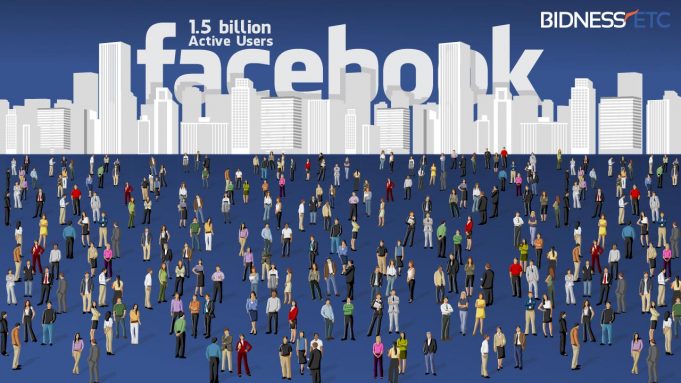Unquestionably, Facebook is the largest social network in the world with over a billion and a half active users monthly, and over a billion daily active users.
As a matter of fact, we used to say everything has pros and cons, and so does Facebook.
I am not going to discuss them in this article, yet I am going to share my thoughts on the impact Facebook has and it means for all of us.
To kick off, let us have a look at these figures:
- According to the Facebook user data, in Nov 2016 there were around 1.17 billion Facebook users.
- According to the United Nations stats, the world’s population has reached 7.5 billion people in Nov 2016.
- According to Statista, in 2016 there were approximately 3.5 billion Internet users worldwide.
Based on these figures, half of the Internet users who do not use Facebook themselves interact with someone who does. It means that around all world’s Internet users do use, follow, or at least know about Facebook.
And this number counts for almost half of the world population.
The question is: what’s wrong about that?
To find the answer, let’s talk about three major points:
- Social and cultural effects
- Political effects
- Scientific effects
What are you talking about?! Facebook is a social media network that is meant to be involved with our social life! – you might say.
Yes, perhaps that was the initial idea, but let’s see how does it look like now.
How many of us became connected with friends only via Facebook? How many people limited their relations with just a Facebook life?
Now, a horrific thing is individuals who found the change on Facebook or the courage to be what they can’t be.
A simple example: friend whom you know in reality who is far from giving advice about honesty, but s/he comes to post advice, poem or videos on Facebook about honesty. What?
What happens in this case?
Two scenarios:
First, you neglect or scroll the page down, and you talk to yourself: oh, I need to re-classify this person again!
Or second, you comment his post, notifying him about the truth, or, giving the advice to be true to yourself.
What is common for both of these scenarios?
Either you lost a friend in the first case, saying “oh no way this person is so fake”, or this person will take your comment as an offense so s/he will attack back, or neglect you, or block and unfriend you. Brilliant!
Same scenarios happen Facebook regularly from the cultural, scientific and political point of view
Facebook nowadays became the reference.
How is that?
A person on Facebook writes or shares a post, his friends or followers would read or share it without taking any time to fact-check it.
No, s/he takes it, speaks it here and there to friends and colleagues and family, whether Internet users they are or not, and then the post gets shared across and outside the social network.
Now, how many of these people questioned the authenticity of the post before sharing? And how many of the receivers took it as a fact and trusted it?
The scariest thing happens when the so-called influencers — or simply put, people with a high number of followers on their Facebook pages — share a post or a video with these millions of followers and it is incorrect, racist or totally inappropriate.
How many followers will share this post whether on their Facebook page or in the real life without checking the truth? When will this happen?
Social and cultural hatred or grudge towards a certain group or society, or maybe political symbols and parties have recently become a norm on Facebook.
How many of us are considering to actually leave Facebook? How many of us stopped liking a number of friends based on their behaviour on Facebook?
Since Facebook’s influence has a profound effect on the lives and minds of its users, what will happen then
Facebook has an answer for this question.
Mark Zuckerberg, Facebook’s CEO, has already attributed the spark of hatred to the fake news problem and offered a 7-step plan to address this matter.
The underlying notion of the remedy goes along the lines of “if you are not capable of identifying what’s real news and what isn’t, Facebook will do this for you”.
Tyler Durden from ZeroHedge offered a critical summary of the plan:
[…] Facebook will make it easier for any Tom, Dick, Or Harriet to complain about a story that will necessarily cut the revenues from that entity and will rely on ‘fact-checking’ organizations, establishment 3rd parties, and the mainstream media for input.
Well what could go wrong? […]
Brain-washing influence, hating and loving based on Facebook-shared content, and acting based on Facebook’s influence seems to be the problem.
If we need such system in place, does all that still make us humans? And what are the social, political and economic implications of such measures going to be?
Let me know what you think and what you believe could be a solution to this. Would love to hear your thoughts.
P.S.
FireBrander from ZeroHedge has a point.








Ahmed: If freedom of speech is well established on a free marketplace, it will solve the problem with fake news.
I believe that this is an attitude! one should not share fake news under any circumstances, no?